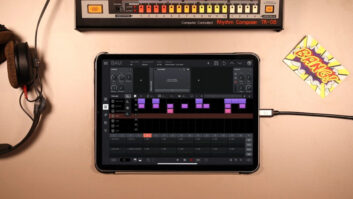The video game market, once shunned for its low margins, is looking more attractive to consumer electronics retailers because sales are growing despite the recession and the market is expanding beyond the hard-core gamer.
In addition the category delivers what every merchant desires right now — store traffic.
hhgregg entered the gaming segment on Black Friday. Nebraska Furniture Mart is planning to promote it more heavily. Fred Meyer said it will expand the segment. Sixth Avenue Electronics is looking at entering gaming, and J & R Music World is considering expanding into used games. Amazon began selling used games in March, and Toys “R” Us just began test-marketing used games in a couple of New York-area stores.
Total video game hardware, software and accessory dollar sales to consumers were up 13 percent in January and 11 percent in February, according to The NPD Group, which is predicting a strong March in software.
Nebraska Furniture Mart division merchandise manager Mark Shaw summed up the gaming attraction: “We see it as a category that is growing. We see it as an opportunity to increase store traffic and top line sales and there’s a tie in … to other purchases such as TVs and home audio. Also it’s more of a family entertainment device today.”
Dealer margins in the category are among the slimmest in consumer electronics, running from just about zero to a few points for the consoles and portables. First-run titles can see margins of 15 percent to 20 percent, and accessories carry margins from 10 percent to 30 percent, but the software business is treacherous.
Unlike DVD movies, which have a street date, game titles are shipped in a free for all from the second they leave the factory. The retailers who invest in air freight get titles first, and the kids go to those stores, unwilling to wait a day or two for the new hot title. The day of release is when most of the money is made.
“I always say UPS and FedEx are making the most money in this business,” quipped Mario Rocchi, president of Vast, a distributor.
Should the uninitiated retailer enter this dog eat dog market? “No,” if they plan to cater to hard core gamers, said Rocchi. But Nintendo has literally changed the game with its Wii, by attracting the casual gamer — even grandmas and tweens — and dealers might find some profits selling to this demographic.
“The Wii has opened up a market for the other retailers. Nintendo has called this thing so right it’s unbelievable. They hit the tweens, grandma, they hit nursing homes! It’s just unbelievable,” said Rocchi.
Most grandmas don’t line up at midnight to get the latest Resident Evil game. But they might buy Wii Fit weeks and even months after it is released. The Wii Fit game bundled with a balance board ($89 street price) was the best-selling game in February, according to NPD.
hhgregg entered the gaming market in November, offering PS3, Xbox and Wii consoles bundled with software. The chain does not stock individual titles but sells the software only in bundles. It offers no demo areas, but it stocks the product near the register and sells the accessories in the computer section. Jeff Pearson, marketing VP of the chain, said, “We’re definitely pleased with our results over the holidays, and we continue to be pleased.”
Sixth Avenue Electronics is now eyeing the market. On the plus side, it might help the chain sell high-end gaming TVs, such as those from Sharp (with accelerated response times to suit gamers). Tom Galanis, operations VP, said the category is also too big to ignore. “The fact that gaming is healthy is causing us to look at it … It’s as big as the NFL and NBA put together.”
J&R said it is looking into expanding into used software titles and has been expanding its selection of PC games. A spokesman said, “Certainly, with the economy … there’s a much higher demand for used titles. Our customers are asking for it. I think that’s because of the state of the economy.”
Buying and selling used games has been lucrative for GameStop, said industry members. Selling used titles is profitable on paper but still difficult to execute. The retailer might pay a customer $10 for a game that could resell for $30. But the retailer would need an infrastructure to process the returned games and the games often come in with scratches and missing covers so the profits get whittled away, said distributors.












